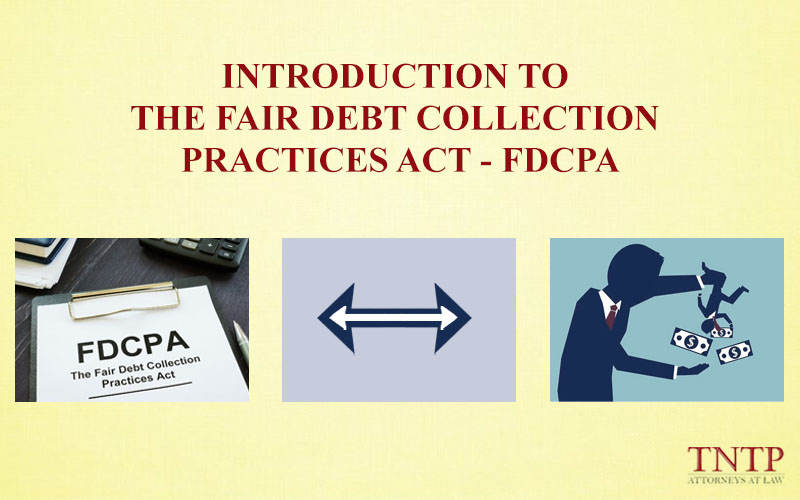The Fair Debt Collection Practices Act (FDCPA) is a federal law that regulates and directs the proper behavior in the debt recovery process of creditors to the debtor in the United States of America. Accordingly, the FDCPA has many regulations aimed at limiting the activities of third parties – authorized or on behalf of an individual or organization to conduct debt recovery for debtors with a United States of America address.
1. The essence of FDCPA
A lot of people argue that FDCPA is a condonation of United States of America law to protect the interests of the debtor, who is people or organizations that did not fulfill their obligations to pay from the debt collector, while the debt collector is restricted from legitimate rights and obligations when asking the debtor to pay the debt for the creditor. However, the nature of FDCPA is not entirely negative.
FDCPA does not protect the debtor from direct creditors, such as the fact that A is a borrower of B, then B will be the direct creditor. The FDCPA does not protect A from debt recovery measures taken by B. Otherwise, the FDCPA will only be applied to third parties that perform debt recovery services on behalf of direct creditors – or parties who conduct the debt recovery activities.
The main purpose of enacting the FDCPA is to force the parties who carry out debt recovery activities to take peaceful measures and respect the rights of debtors, avoiding the debt collector’s acts of abuse or violence, threatening the debtor and causing social disorder . In short , the FDCPA can be likened to the Code of Ethics and Conduct of Debt Collectors in the United States of America.
2. Some typical provisions of the FDCPA
– Regulations on debt recovery calls
- According to the FDCPA’s regulations, debt collectors are only allowed to call debtors between 8 a.m and 9 p.m (not applicable for weekends or public holidays). Any call from debt collectors outside the above hours will be considered harassment and may be sued by debtors themselves for violating the FDCPA provisions, unless debt collectors have agreed with debtors on contacting outside of the above allowed hours.
- In case of inability to call the debtor, debt collectors may contact the telephone number of their relatives and neighbors. However, debt collectors are not allowed to disclose any information about the debt to these people. In addition, debt collectors are only allowed to call those involved with debtors once at a time per person.
– Mini-Miranda
This is a special provision of the FDCPA, according to which, debt collectors will have to notify debtors of specific information before mentioning to the content of requesting payment of debts. The specific information includes:
- Full name of the debt collector, the organization in which the debt collector is operating
- The amount of money the debtor must pay
- Full name, specific information of creditors
- Must to ask if the debtor agrees to continue the call or not. If the debtor does not agree to continue the call, the debt collector must terminate the call and make an appointment to contact again at another time.
– It is forbidden to threaten or use offensive words
Under FDCPA rules, debt collectors are not allowed to use offensive, harassing or abusive language to debtors, even when making a phone call or send text messages. In addition, if debt collectors threaten debtors to sue but does not prove that the intention to initiate this lawsuit will definitely be conducted, debt collectors may be sued by debtors themselves for the behavior: Threatened by using false information.
As can be seen that FDCPA is a religion that directly and specifically influences the behaviors of debt collectors. Although this reduces legal debt collection activities and actions in the United States of America, the debtor is fully protected for human and civil rights. Therefore, when conducting debt collection in the United States of America, debt collectors need to pay special attention to the FDCPA and the consequences in case of FDCPA violation.
The above is a our legal acknowledge sharing of the United States of America Fair Debt Collection Practices Act. We do hope that the article may help your work.
Best regards,
You may need Legal ways to collect debts in the United States of America
Join Fanpage Dispute Settlement and Debt Collection to have more useful legal knowledge.
TNTP & Associates International Law Firm
6th Floor, No. 200 Nguyen Luong Bang Street, Quang Trung Ward, Dong Da District, Hanoi
Lawer Nguyen Thanh Ha
Email: ha.nguyen@tntplaw.com







